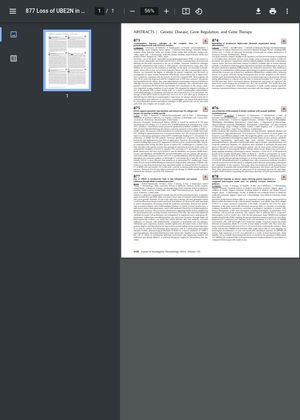Loss of UBE2N in Keratinocytes Leads to Skin Inflammation and Immune Infiltration Through IRAK1/4-Mediated Processes

TLDR Removing UBE2N from skin cells causes inflammation and immune response, which can be lessened with specific inhibitors.
The study investigates the role of UBE2N, a ubiquitin conjugating enzyme, in adult skin using conditional knockout mouse models. Deletion of Ube2n in basal keratinocytes led to severe skin inflammation, thickening, abnormal hair growth, and increased erythema, resembling conditions like psoriasis. Single-cell RNA sequencing revealed increased immune cell infiltration, particularly neutrophils and macrophages, and altered gene expression, including decreased heat shock proteins and elevated cytokines, especially IL-1. Blocking IRAK1/4, key mediators in TLR/IL-1 signaling, reduced inflammation, suggesting UBE2N's crucial role in skin homeostasis and potential therapeutic targets for inflammatory skin disorders.



